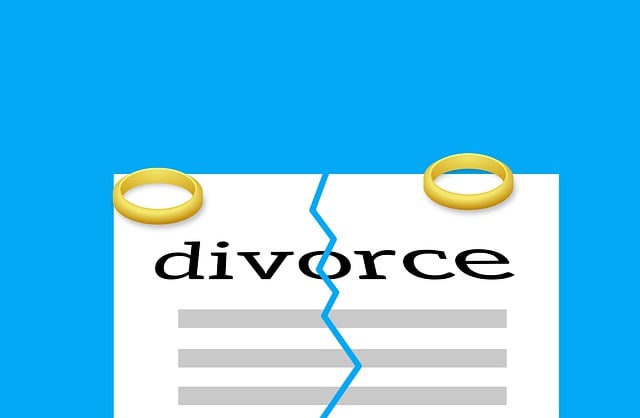In complex, high-conflict divorces, seeking expert divorce lawyer or family law attorney guidance is vital. These professionals navigate the divorce process, from legal separation to separation agreements and divorce settlements. They offer specialized divorce representation, facilitating either contested or uncontested divorce outcomes, focusing on fairness, client rights, and minimizing conflict through divorce mediation where suitable. Their expertise ensures a smoother process, preserving dignity and financial stability.
Navigating a high-conflict divorce can be an emotionally charged and complex process. When legal separation becomes inevitable, understanding the nuances of the divorce process is crucial. This article guides you through the various aspects, from recognizing when legal separation is necessary to exploring options like divorce mediation and working with a family law attorney. We delve into separation agreements, key considerations for a divorce settlement, and the role of professional divorce representation, offering insights for both contested and uncontested divorces.
- Understanding High-Conflict Divorces: When Legal Separation Becomes Necessary
- The Role of a Divorce Lawyer: Navigating Contested and Uncontested Divorces
- Divorce Mediation: An Amicable Approach to Separation Agreements
- Creating a Divorce Settlement: Key Considerations with a Family Law Attorney
Understanding High-Conflict Divorces: When Legal Separation Becomes Necessary

High-conflict divorces are marked by intense emotional turmoil and significant disagreements between spouses, making a peaceful resolution challenging. In such cases, what initially might have been an uncomplicated separation becomes a complex legal process. When couples face irreconcilable differences or unresolvable disputes about assets, custody, or other critical matters, considering legal separation is essential. This step ensures that both parties have the space to calm down and reassess their situation before making permanent decisions.
While some divorces can be amicable and settled through mediation, high-conflict cases often require the expertise of a divorce lawyer who specializes in contested divorces. A family law attorney can guide clients through the divorce process, negotiate separation agreements, and represent them during negotiations or court proceedings. The goal is to protect their rights, manage expectations, and achieve a fair divorce settlement without exacerbating the conflict.
The Role of a Divorce Lawyer: Navigating Contested and Uncontested Divorces

When navigating the complex landscape of divorce, one of the most crucial decisions a person can make is choosing the right divorce lawyer. These legal professionals play a pivotal role in guiding clients through the intricate process, whether the divorce is contested or uncontested. In the case of a contested divorce, where agreements cannot be reached amicably, a divorce lawyer acts as a powerful advocate, helping their client protect their rights and interests. They guide their client through every step, from initial consultation to final divorce settlement.
On the other hand, in an uncontested divorce, where couples agree on key terms such as legal separation, property division, and child custody (if applicable), a divorce lawyer’s role shifts towards facilitating communication and ensuring a smooth process. They assist in drafting and reviewing separation agreements, ensuring all terms are fair and legally sound. Through mediation or collaborative efforts, these lawyers help families achieve amicable divorces, minimising the emotional and financial toll often associated with contested proceedings. Ultimately, their expertise is invaluable in helping clients navigate the divorce process with dignity and as little conflict as possible.
Divorce Mediation: An Amicable Approach to Separation Agreements

Divorce Mediation offers a significantly more amicable approach to reaching separation agreements compared to the often contentious nature of contested divorces. This alternative method involves both parties working together with a neutral third-party, known as a mediator, who facilitates open communication and helps negotiate terms for an agreement that both can live with. Unlike an uncontested divorce, where there’s typically little dispute over assets or children, mediation is ideal when at least one party wants to resolve differences in a mutually respectful way.
When considering divorce mediation, it’s crucial to seek the assistance of a qualified family law attorney who specializes in this area. They can provide divorce representation tailored to your specific situation and ensure that your rights are protected throughout the process. This path may not be suitable for every scenario—especially high-asset or complex cases involving significant disputes—but for many, it’s an effective way to navigate the divorce process with minimal conflict and at a potentially lower cost than traditional litigation.
Creating a Divorce Settlement: Key Considerations with a Family Law Attorney

When navigating a high-conflict divorce, one of the most crucial steps is creating a fair and legally binding divorce settlement. Engaging the services of a qualified family law attorney becomes imperative in this process. They can offer specialized divorce representation, guiding clients through complex legalities and helping them make informed decisions.
Whether it’s a contested divorce or an uncontested divorce, these professionals ensure that all aspects of the divorce process are thoroughly understood. They facilitate negotiations, draft separation agreements, and ensure the final divorce settlement aligns with state laws and adequately addresses financial, custody, and property-related matters. An attorney’s expertise is invaluable in achieving a mutually agreeable outcome, fostering what many strive for—an amicable divorce.
High-conflict divorces can be a challenging and emotional process. However, with the right guidance from a skilled divorce lawyer or family law attorney, couples can navigate these complexities and reach a mutually agreeable divorce settlement. Whether through legal separation, contested or uncontested divorces, mediation, or collaborative efforts, an amicable divorce is within reach. Divorce representation ensures that your rights are protected while facilitating open communication, allowing for a smoother transition during what can be a difficult time.
